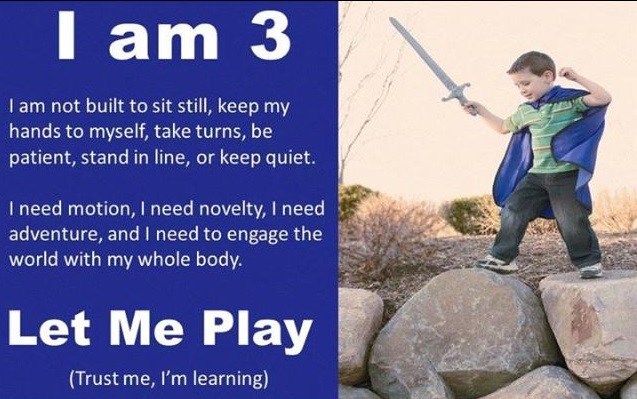“Play is often talked about as if it were a relief from serious learning. But for children play is serious learning. Play is really the work of childhood.” – Fred Rogers
It seems that today’s parents have a hard time seeing the connection between learning and playing. They seem to believe that these are two aspects that just cannot go together. Play is so often underestimated and seen as a waste of time or distraction from the “real learning”.
On the contrary, play is the most important activity a child can do in his/her early years. Through play children recreate different experiences that will help them later in life. Play is a safe way of practicing those situations that may be causing our children some kind of anxiety or fear.
(…)”Over the last generation, the preschool years have turned into an academic rat race. Who has time for finger painting or puppet shows when there are letters to trace and numbers to learn? Is sitting at a desk really the natural habitat for a three-year-old?
But what about the longer term? Does all that early learning pay off later? Well, no, actually. The latest research suggests that reaching learning milestones early, is not guarantee of future academic stardom. One study in Philadelphia found that by the age of seven or eight there was no discernible gap between the performance of children who spent their preschool years in nurseries that were rigidly academic and those who came from play-based ones. The only difference was that the hothoused kids tended to be more anxious and less creative.
While many believe that knowing letters, numbers, shapes, and colors is the best preparation for school, teachers take a very different view. They say that the child who arrives at First Grade socially adept, who knows how to share, empathize, and follow instructions, will stand a better chance of mastering the academic skills later on.
The truth of the matter is that human beings are hardwired to learn from birth, and are best served reaching the academic milestones when they are emotionally and psychologically ready.
What children seem to thrive on most in the preschool years is the freedom to explore the world around them in a safe, relaxed environment with plenty of stories, rhyming, songs, chat, and play.” (From “Under Pressure” by Carl Honore)

